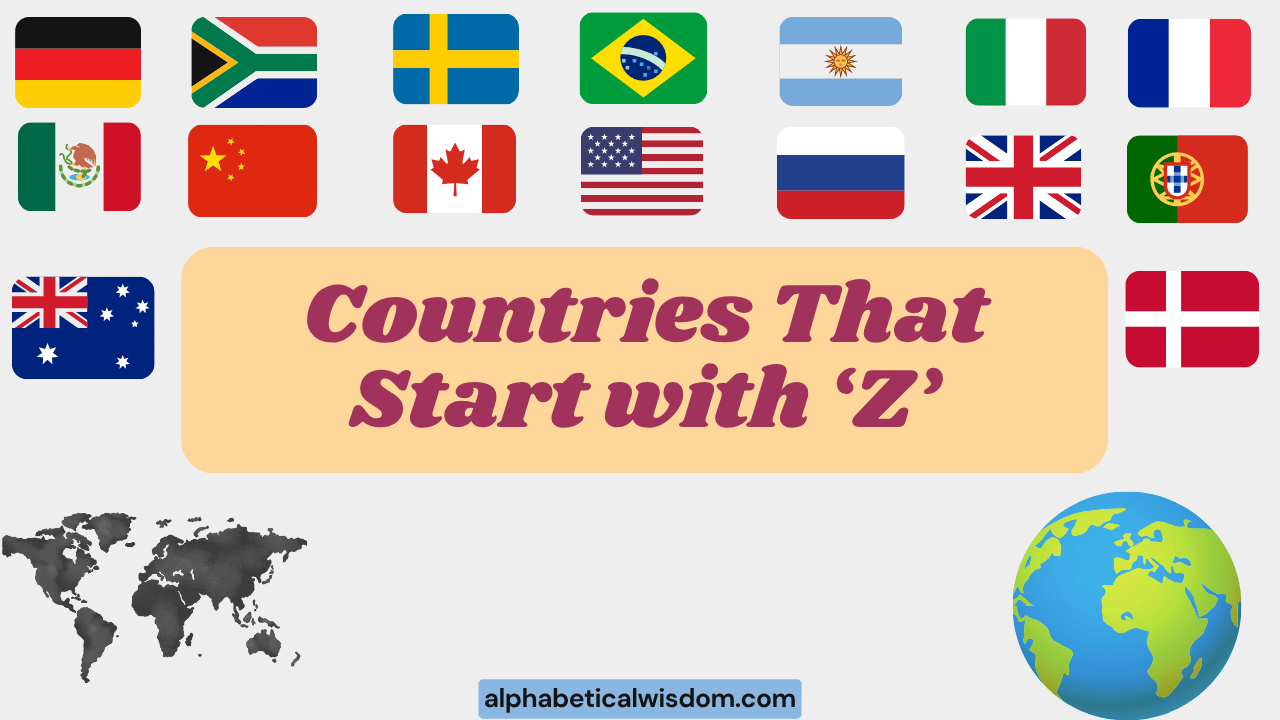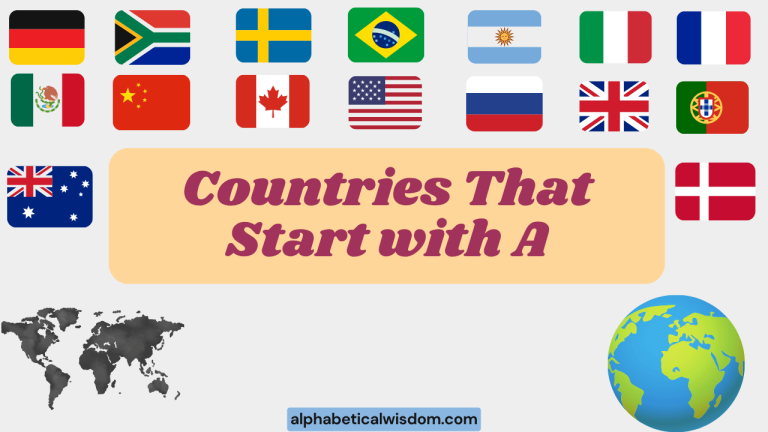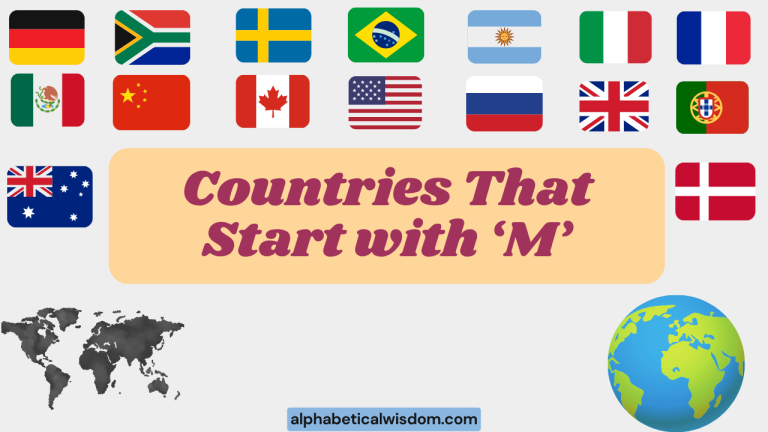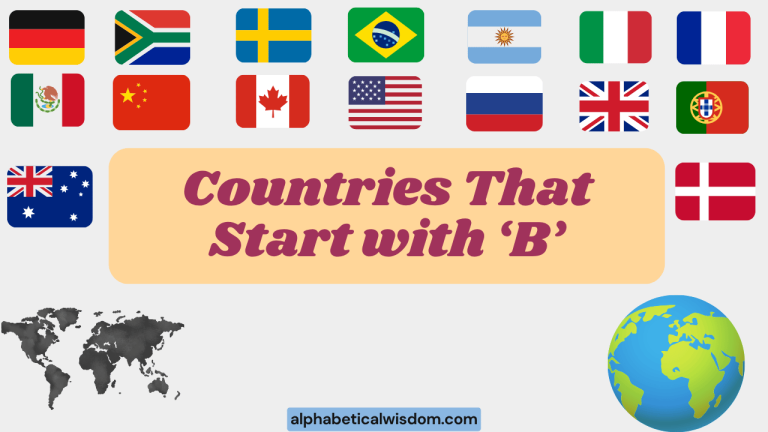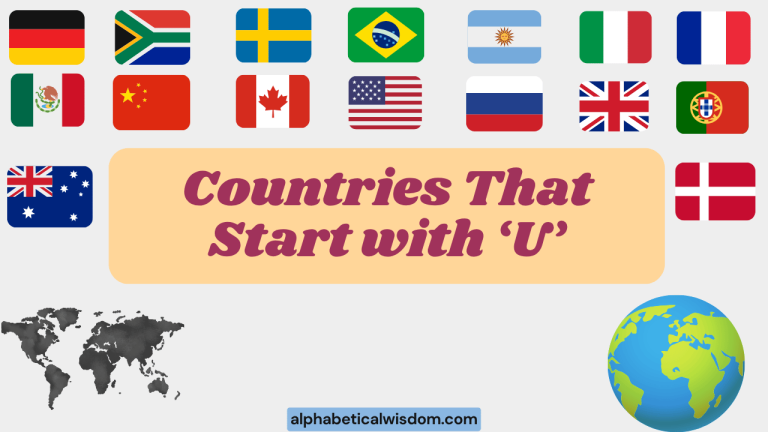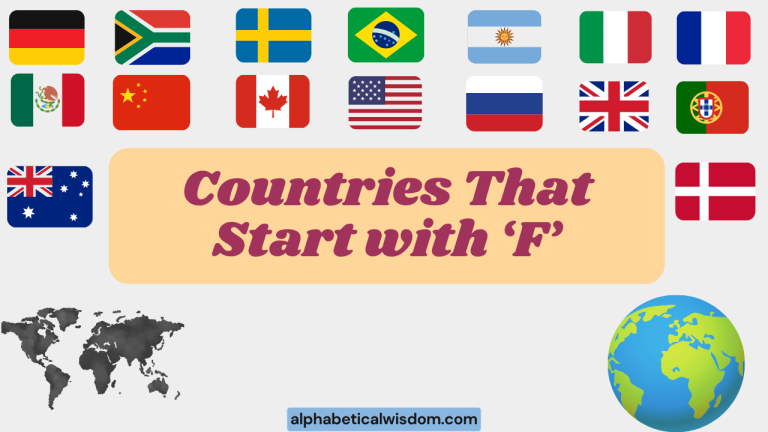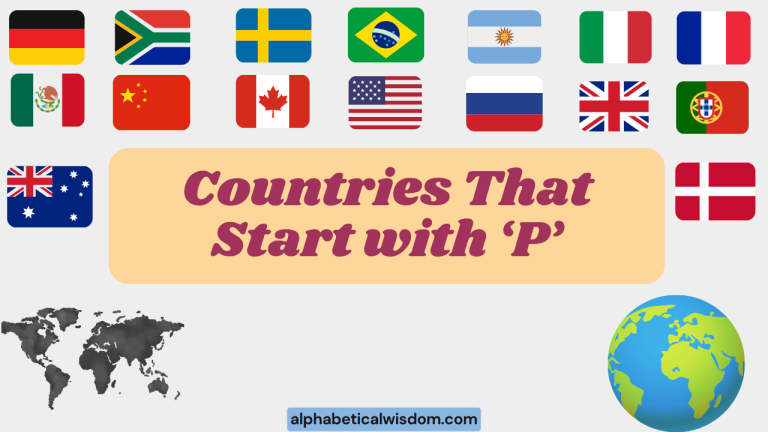Countries Starting With Z: Grammar and Usage
Understanding how to correctly use the names of countries, especially those less common like those starting with “Z,” is crucial for clear and accurate communication. This article delves into the grammatical aspects of using country names beginning with “Z” in English, covering capitalization, articles, prepositions, and common usage scenarios.
Mastering these rules ensures confident and effective writing and speaking. This guide is beneficial for English language learners, writers, travelers, and anyone seeking to improve their grammatical accuracy and cultural awareness.
Table of Contents
- Introduction
- Definition: Countries Starting with Z
- Structural Breakdown
- Types and Categories
- Examples
- Usage Rules
- Common Mistakes
- Practice Exercises
- Advanced Topics
- FAQ
- Conclusion
Definition: Countries Starting with Z
A country starting with “Z” refers to a sovereign state whose name begins with the letter “Z.” Currently, the most widely recognized country fitting this description is Zambia. Historically and geographically, other entities might have names starting with “Z,” but Zambia remains the primary example in contemporary usage. Understanding the grammatical rules associated with its name is essential for accurate and respectful communication. The correct use of capitalization, articles, and prepositions contributes to clarity and professionalism in both written and spoken English.
The classification of “Zambia” falls under the category of proper nouns, specifically toponyms (names of places). Its function in a sentence is typically as a subject, object, or complement.
The contexts in which it appears are varied, ranging from geographical discussions and news reports to travel itineraries and personal anecdotes. Correct usage demonstrates not only grammatical competence but also a degree of cultural and geographical awareness.
Structural Breakdown
The structural breakdown of using “Zambia” and related terms in English involves several key elements. First, capitalization is paramount; “Zambia” is always capitalized as it is a proper noun. Second, article usage is generally absent; we do not typically say “the Zambia.” Third, prepositions like “in,” “to,” “from,” and “of” are commonly used to indicate location, direction, or origin. Fourth, the adjective form, “Zambian,” is used to describe things related to Zambia. Finally, while rare, understanding the potential for plural forms (e.g., referring to different regions or entities within Zambia) is important.
The name “Zambia” itself derives from the Zambezi River, which flows through the country. This etymological connection highlights the importance of understanding the historical and geographical context when using country names.
The grammatical structure reflects the standard conventions for proper nouns in English, ensuring consistency and clarity. Correct application of these structural elements enhances the overall quality of communication.
Types and Categories
While the primary focus is on the country Zambia, it’s helpful to consider the broader categories associated with geographical names. These include:
Sovereign States
Sovereign states are independent and recognized by international law. Zambia is a prime example of a sovereign state starting with “Z.” Understanding the political and geographical boundaries of such entities is crucial for accurate reporting and discussion.
Regions and Provinces
Within Zambia, there are various regions and provinces. While these aren’t countries themselves, they might be referenced in specific contexts.
Knowing the names and locations of these sub-national entities adds depth to one’s understanding.
Historical Entities
Historically, there might have been other political entities starting with “Z” that no longer exist or have changed names. Understanding these historical contexts can be valuable in specific academic or historical discussions.
Researching historical maps and documents can provide insights into these entities.
Fictional Locations
In literature or fictional works, authors might create imaginary countries or places starting with “Z.” While these are not real, they can still be subject to grammatical analysis within the context of the fictional narrative. Analyzing the use of such names can reveal insights into the author’s creative choices.
Examples
To illustrate the correct usage of “Zambia” and related terms, the following examples are categorized for clarity.
General Usage Examples
This table provides general examples of how “Zambia” is used in various contexts.
| Category | Example Sentence |
|---|---|
| Location | Lusaka is the capital of Zambia. |
| Origin | She is from Zambia. |
| Travel | I plan to travel to Zambia next year. |
| Adjective | He is a Zambian citizen. |
| News | The president of Zambia addressed the nation. |
| Culture | Zambian culture is rich in traditions. |
| Economy | Zambia’s economy relies heavily on copper. |
| Geography | The Zambezi River flows through Zambia. |
| Politics | The political situation in Zambia is complex. |
| Education | He studied at a university in Zambia. |
| Wildlife | Zambia is home to diverse wildlife. |
| Tourism | Tourism in Zambia is increasing. |
| History | The history of Zambia is fascinating. |
| Society | Zambian society is known for its hospitality. |
| Development | Zambia is undergoing rapid development. |
| Agriculture | Agriculture is a key sector in Zambia. |
| Environment | Environmental issues are crucial in Zambia. |
| Health | Healthcare in Zambia is improving. |
| Technology | Technology is advancing in Zambia. |
| Arts | Zambian arts and crafts are unique. |
| Sports | Football is a popular sport in Zambia. |
| Climate | The climate in Zambia is tropical. |
| Infrastructure | Infrastructure development is vital for Zambia. |
| International Relations | Zambia maintains strong international relations. |
| Trade | Zambia engages in international trade. |
Sentence Examples with ‘Z’ Countries
This table provides more detailed sentence examples showcasing different grammatical structures.
| Sentence | Grammatical Feature |
|---|---|
| She traveled to Zambia last summer. | Preposition “to” indicating destination. |
| He is a Zambian doctor working in the capital. | Adjective “Zambian” describing nationality. |
| The culture of Zambia is rich and diverse. | Preposition “of” indicating possession. |
| The Zambezi River flows through Zambia. | Direct statement of geographical fact. |
| I met several people from Zambia at the conference. | Preposition “from” indicating origin. |
| The government of Zambia is working on economic reforms. | “Government of” structure indicating governance. |
| Zambia’s economy is heavily reliant on copper exports. | Possessive form indicating economic dependence. |
| We are studying the history of Zambia in our class. | “History of” structure indicating subject matter. |
| The wildlife in Zambia is a major tourist attraction. | “Wildlife in” structure indicating location. |
| He plans to invest in Zambia’s growing economy. | “Invest in” structure indicating financial activity. |
| She is learning about Zambian traditions. | Adjective “Zambian” describing cultural aspect. |
| The president of Zambia gave a speech yesterday. | “President of” structure indicating leadership. |
| They are building new schools in Zambia. | Preposition “in” indicating location of construction. |
| The music from Zambia is very captivating. | Preposition “from” indicating origin of music. |
| He is writing a book about Zambia. | Preposition “about” indicating subject of writing. |
| The food in Zambia is delicious. | Preposition “in” indicating location of food. |
| She wants to work as a teacher in Zambia. | Preposition “in” indicating work location. |
| He is researching the political system of Zambia. | “Political system of” structure indicating research area. |
| The culture and traditions of Zambia are fascinating. | “Culture and traditions of” structure indicating cultural aspects. |
| She is studying the geography of Zambia. | “Geography of” structure indicating study area. |
| They are promoting tourism to Zambia. | Preposition “to” indicating destination for tourism. |
| The economy of Zambia is developing rapidly. | “Economy of” structure indicating economic status. |
| He is interested in the history of Zambia. | Preposition “in” indicating interest in a subject. |
Examples in Conversations
This table showcases how “Zambia” might be used in everyday conversations.
| Speaker A | Speaker B |
|---|---|
| “Have you ever been to Africa?” | “Yes, I visited Zambia a few years ago.” |
| “Where is she from?” | “She’s from Zambia, I believe.” |
| “What’s the capital of Zambia?” | “The capital is Lusaka.” |
| “I heard the economy in Zambia is growing.” | “Yes, it’s showing positive signs.” |
| “Do you know any Zambian dishes?” | “Yes, Nshima is a popular one.” |
| “I’m planning a trip to Africa. Any recommendations?” | “You should consider Zambia; it’s beautiful.” |
| “What language do they speak in Zambia?” | “English is the official language, along with local languages.” |
| “I read an article about Zambia’s wildlife conservation efforts.” | “That’s great; they’re doing important work.” |
| “Have you met anyone from Zambia?” | “Yes, I have a friend who is Zambian.” |
| “What’s it like living in Zambia?” | “It’s a vibrant and friendly country.” |
| “I’m researching African countries for a school project.” | “You should definitely include Zambia.” |
| “Is it safe to travel to Zambia?” | “Generally, yes, but it’s always good to check travel advisories.” |
| “I’m thinking of volunteering in Africa.” | “There are many opportunities in Zambia.” |
| “What’s the climate like in Zambia?” | “It’s tropical, with a rainy season.” |
| “I heard Zambia has beautiful waterfalls.” | “Yes, Victoria Falls is a must-see.” |
| “Do you know anything about Zambian music?” | “It’s very rhythmic and diverse.” |
| “I’m interested in learning more about Zambia’s history.” | “There are many resources available online and in libraries.” |
| “What’s the cost of living like in Zambia?” | “It can be relatively affordable, depending on your lifestyle.” |
| “I’m impressed by Zambia’s progress in education.” | “Yes, they’ve made significant strides.” |
| “Have you tried any Zambian cuisine?” | “Not yet, but I’m eager to try it.” |
Formal Writing Examples
The following table demonstrates how “Zambia” might be used in formal writing, such as academic papers or official reports.
| Context | Example Sentence |
|---|---|
| Academic Paper | This study examines the economic impact of copper mining in Zambia. |
| Official Report | The government of Zambia has implemented new policies to promote sustainable development. |
| Business Proposal | Our company proposes to invest in renewable energy projects in Zambia. |
| Diplomatic Correspondence | The Ambassador of Zambia expressed his gratitude for the international support. |
| Legal Document | The contract stipulates that all disputes shall be resolved under the laws of Zambia. |
| Research Grant | The research grant will support a study on healthcare access in rural Zambia. |
| Environmental Assessment | The environmental assessment evaluated the potential impact of the project on Zambia’s ecosystem. |
| Policy Brief | This policy brief outlines key recommendations for improving education in Zambia. |
| Historical Analysis | The historical analysis traces the political development of Zambia from independence to the present day. |
| Geographical Survey | The geographical survey identified key natural resources in Zambia. |
Informal Writing Examples
This table shows how “Zambia” can be used in informal writing, such as emails or social media posts.
| Context | Example Sentence |
|---|---|
| Email to a friend | Hey! I’m thinking of visiting Zambia next year. Any tips? |
| Social Media Post | Just booked my flight to Zambia! So excited! #travel #africa |
| Blog Post | My experience exploring the wildlife in Zambia was incredible! |
| Text Message | Guess what? I met someone from Zambia today! |
| Online Forum | Has anyone traveled to Zambia recently? I’d love to hear your experiences. |
Usage Rules
To ensure correct usage, it’s important to follow specific grammatical rules.
Capitalization Rules
Always capitalize “Zambia” as it is a proper noun. This rule applies regardless of its position in a sentence.
Example: Zambia is a country in Africa.
Article Usage
Generally, do not use articles (a, an, the) before “Zambia.” Countries are typically not preceded by articles unless part of a larger phrase (e.g., the Republic of Zambia).
Correct: I am going to Zambia.
Incorrect: I am going to the Zambia.
Preposition Usage
Use appropriate prepositions to indicate location, direction, or origin. Common prepositions include “in,” “to,” “from,” and “of.”
- In: To indicate location within the country. Example: She lives in Zambia.
- To: To indicate movement towards the country. Example: He is traveling to Zambia.
- From: To indicate origin or departure. Example: They are from Zambia.
- Of: To indicate possession or association. Example: The culture of Zambia is rich.
Adjective Formation
Use the adjective form “Zambian” to describe something related to Zambia. This form is used to modify nouns.
Example: He is a Zambian citizen.
Example: She enjoys Zambian music.
Plural Forms (Rare)
Plural forms are rarely used with country names unless referring to specific regions or entities within the country. In most cases, “Zambia” remains singular.
Rare Example: The different regions of Zambia have unique cultures. (Here, “Zambia” is used to refer to its constituent regions.)
Common Mistakes
Here are some common mistakes to avoid when using “Zambia” in English.
| Incorrect | Correct | Explanation |
|---|---|---|
| I am going to the Zambia. | I am going to Zambia. | Do not use “the” before “Zambia.” |
| She is Zambian citizen. | She is a Zambian citizen. | Use the article “a” before “Zambian” when it modifies “citizen.” |
| Zambia’s capital is Lusaka city. | Zambia’s capital is Lusaka. | “Lusaka” is already understood to be a city. |
| He come from Zambia. | He comes from Zambia. | Use the correct verb conjugation (“comes” for third-person singular). |
| Zambia is a African country. | Zambia is an African country. | Use “an” before words that start with a vowel sound. |
Practice Exercises
Test your understanding with these practice exercises.
Exercise 1: Fill in the Blanks
Fill in the blanks with the correct word or phrase.
| Question | Answer |
|---|---|
| Lusaka is the capital of __________. | Zambia |
| He is a __________ citizen. | Zambian |
| She traveled __________ Zambia last year. | to |
| The culture __________ Zambia is fascinating. | of |
| They are __________ Zambia. | from |
| I am interested __________ the history of Zambia. | in |
| The Zambezi River flows __________ Zambia. | through |
| __________ economy relies heavily on copper. | Zambia’s |
| He is studying __________ a university in Zambia. | at |
| __________ is known for its wildlife. | Zambia |
Exercise 2: Correct the Errors
Identify and correct the errors in the following sentences.
| Incorrect Sentence | Correct Sentence |
|---|---|
| I want to visit the Zambia. | I want to visit Zambia. |
| She is a Zambia doctor. | She is a Zambian doctor. |
| He come from Zambia. | He comes from Zambia. |
| The capital of Zambia is Lusaka city. | The capital of Zambia is Lusaka. |
| I learning about Zambia culture. | I am learning about Zambian culture. |
| She live in the Zambia. | She lives in Zambia. |
| They are study in Zambia. | They are studying in Zambia. |
| He from Zambia, Africa. | He is from Zambia, Africa. |
| I go to Zambia next year. | I am going to Zambia next year. |
| She is interesting in Zambia history. | She is interested in Zambia’s history. |
Exercise 3: Sentence Construction
Construct sentences using the given words related to “Zambia.”
| Words | Example Sentence |
|---|---|
| travel, Zambia, to | I plan to travel to Zambia next summer. |
| Zambian, culture, rich | Zambian culture is rich and diverse. |
| from, Zambia, she | She is from Zambia. |
| capital, Zambia, Lusaka | The capital of Zambia is Lusaka. |
| economy, Zambia, growing | Zambia’s economy is growing. |
| wildlife, Zambia, diverse | Zambia has diverse wildlife. |
| river, Zambia, Zambezi | The Zambezi River flows through Zambia. |
| people, Zambia, friendly | The people of Zambia are very friendly. |
| visit, Zambia, I | I would like to visit Zambia someday. |
| traditions, Zambia, ancient | Zambia has many ancient traditions. |
Exercise 4: Preposition Practice
Choose the correct preposition to complete the following sentences.
| Question | Answer |
|---|---|
| He is currently working __________ Zambia. (in, to, from) | in |
| She is traveling __________ Zambia next month. (in, to, from) | to |
| They are originally __________ Zambia. (in, to, from) | from |
| The culture __________ Zambia is unique. (of, to, in) | of |
| I am interested __________ learning more about Zambia. (in, to, from) | in |
| The Zambezi River flows __________ Zambia. (through, to, in) | through |
| She lives __________ Lusaka, Zambia. (in, to, from) | in |
| He is going __________ Zambia for a vacation. (to, in, from) | to |
| They came __________ Zambia to study. (to, from, in) | to |
| The products __________ Zambia are high quality. (from, to, in) | from |
Exercise 5: Create a Paragraph
Write a short paragraph (5-7 sentences) about Zambia, using the correct grammar and vocabulary.
Answer: Zambia is a landlocked country in Southern Africa known for its diverse wildlife and stunning natural beauty. The capital of Zambia is Lusaka, a vibrant city with a rich cultural heritage. The Zambezi River, one of Africa’s longest rivers, flows through Zambia, providing vital resources and breathtaking scenery. Zambia’s economy relies heavily on copper mining, but there are also growing sectors in tourism and agriculture. The people of Zambia are known for their hospitality and friendliness. Traveling to Zambia offers a unique opportunity to explore the wonders of Africa.
Advanced Topics
For advanced learners, here are some more complex aspects to consider.
Historical Context
Understanding the historical context of Zambia, including its colonial past and path to independence, enriches the understanding of its current social and political landscape. Delving into historical texts and scholarly articles can provide deeper insights into the country’s development and challenges.
Examining the impact of British colonialism on Zambia’s governance and economic structures is also crucial for a comprehensive understanding.
Cultural Significance
Exploring the cultural significance of various Zambian traditions, languages, and art forms offers a richer understanding of the country’s identity. Researching the diverse ethnic groups and their unique customs can provide valuable insights into the social fabric of Zambia.
Understanding the role of traditional music, dance, and storytelling in preserving Zambian heritage is also essential.
Linguistic Variations
Investigating the linguistic variations within Zambia, including the different indigenous languages and their influence on English usage, can enhance one’s understanding of the country’s linguistic landscape. Studying the grammar and vocabulary of these languages can also provide a deeper appreciation for the cultural nuances embedded within them.
Analyzing how these languages interact with English in Zambia can reveal unique linguistic patterns.
FAQ
Here are some frequently asked questions about using “Zambia” in English.
- Is it correct to say “the Zambia”?
No, it is generally incorrect to use the article “the” before “Zambia” unless it is part of a longer formal name like “the Republic of Zambia.” - What is the adjective form of Zambia?
The adjective form is “Zambian.” For example, “Zambian culture” or “Zambian people.” - What prepositions are commonly used with Zambia?
Common prepositions include “in,” “to,” “from,” and “of.” For example, “in Zambia,” “to Zambia,” “from Zambia,” and “the culture of Zambia.” - How do you pronounce Zambia correctly?
The pronunciation is typically “zam-bee-uh,” with the emphasis on the first syllable. - What is the capital of Zambia?
The capital of Zambia is Lusaka. - What languages are spoken in Zambia?
English is the official language, but many indigenous languages are also spoken, including Bemba, Nyanja, and Tonga. - Is Zambia a safe country to visit?
Generally, Zambia is considered a safe country to visit, but it’s always advisable to check current travel advisories and take necessary precautions. - What is Zambia known for?
Zambia is known for its diverse wildlife, stunning natural beauty, and the Zambezi River, including Victoria Falls. - Can I use “Zambia” in a possessive form?
Yes, you can use the possessive form “Zambia’s.” For example, “Zambia’s economy” or “Zambia’s history.” - Are there any common slang terms related to Zambia?
While there may be some informal terms used within Zambia, there are no widely recognized slang terms for Zambia in general English usage. - How do I address someone from Zambia formally?
Use formal titles like “Mr.,” “Ms.,” or “Dr.” followed by their last name unless they indicate otherwise. It’s always polite to ask how they prefer to be addressed.
Conclusion
Understanding the grammatical rules for using country names, particularly those less common like “Zambia,” is vital for effective communication. This article has covered the essential aspects, including capitalization, article usage, prepositions, adjective formation, and common mistakes.
By mastering these rules, you can confidently and accurately use “Zambia” in your writing and speaking, demonstrating both grammatical competence and cultural awareness. Remember to practice these rules through exercises and real-world application to solidify your understanding.
The key takeaways include always capitalizing “Zambia,” avoiding articles before the name, using appropriate prepositions, and correctly forming the adjective “Zambian.” Continuous practice and attention to detail will help you avoid common mistakes and enhance your overall English proficiency. Keep exploring and learning about different countries and their grammatical nuances to broaden your linguistic skills and cultural understanding.
